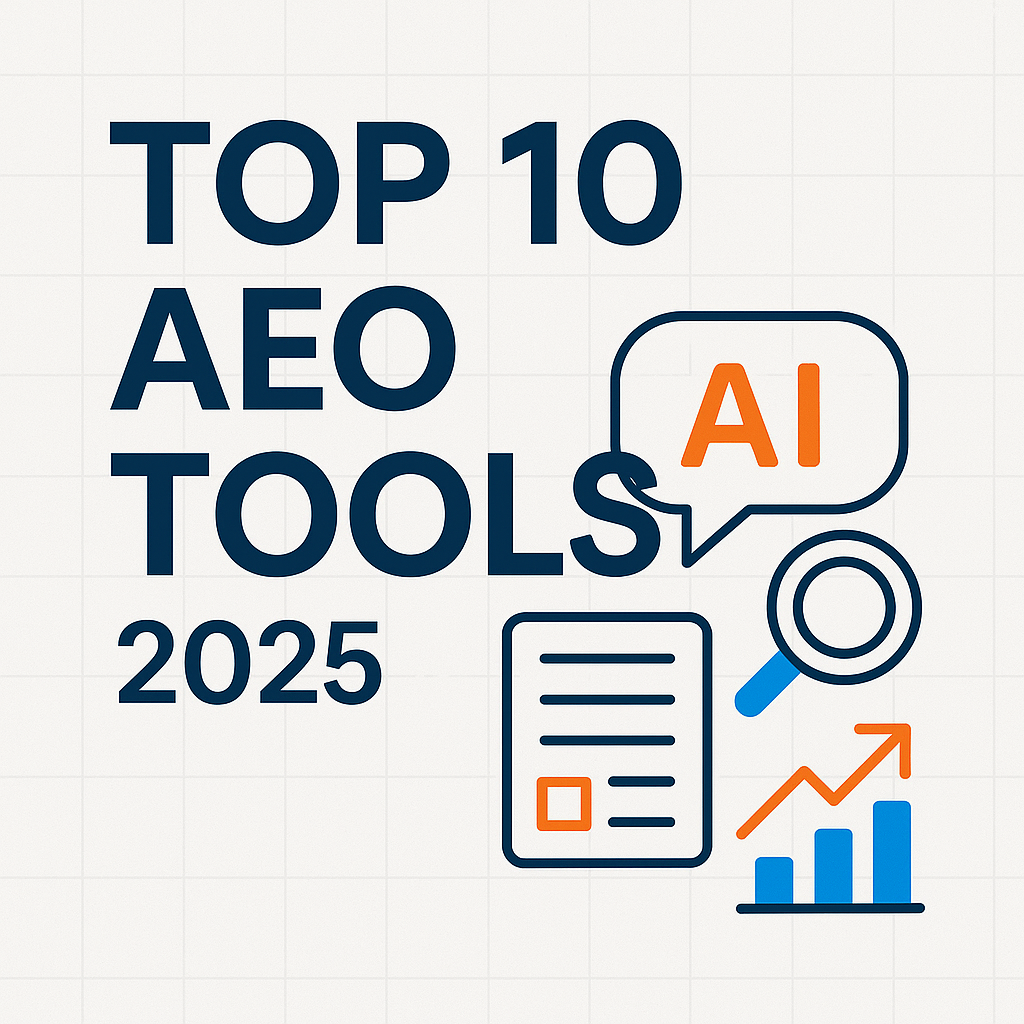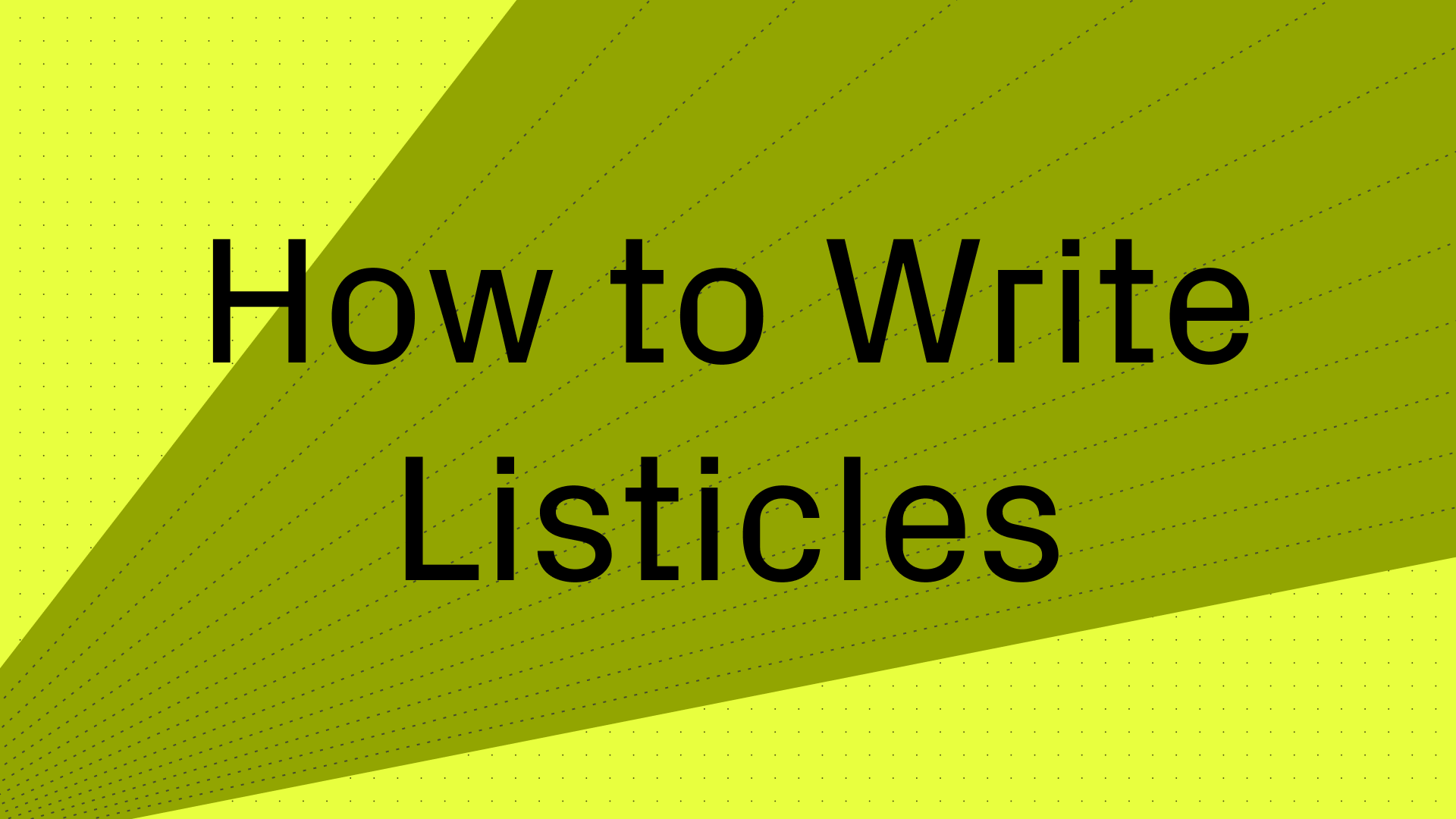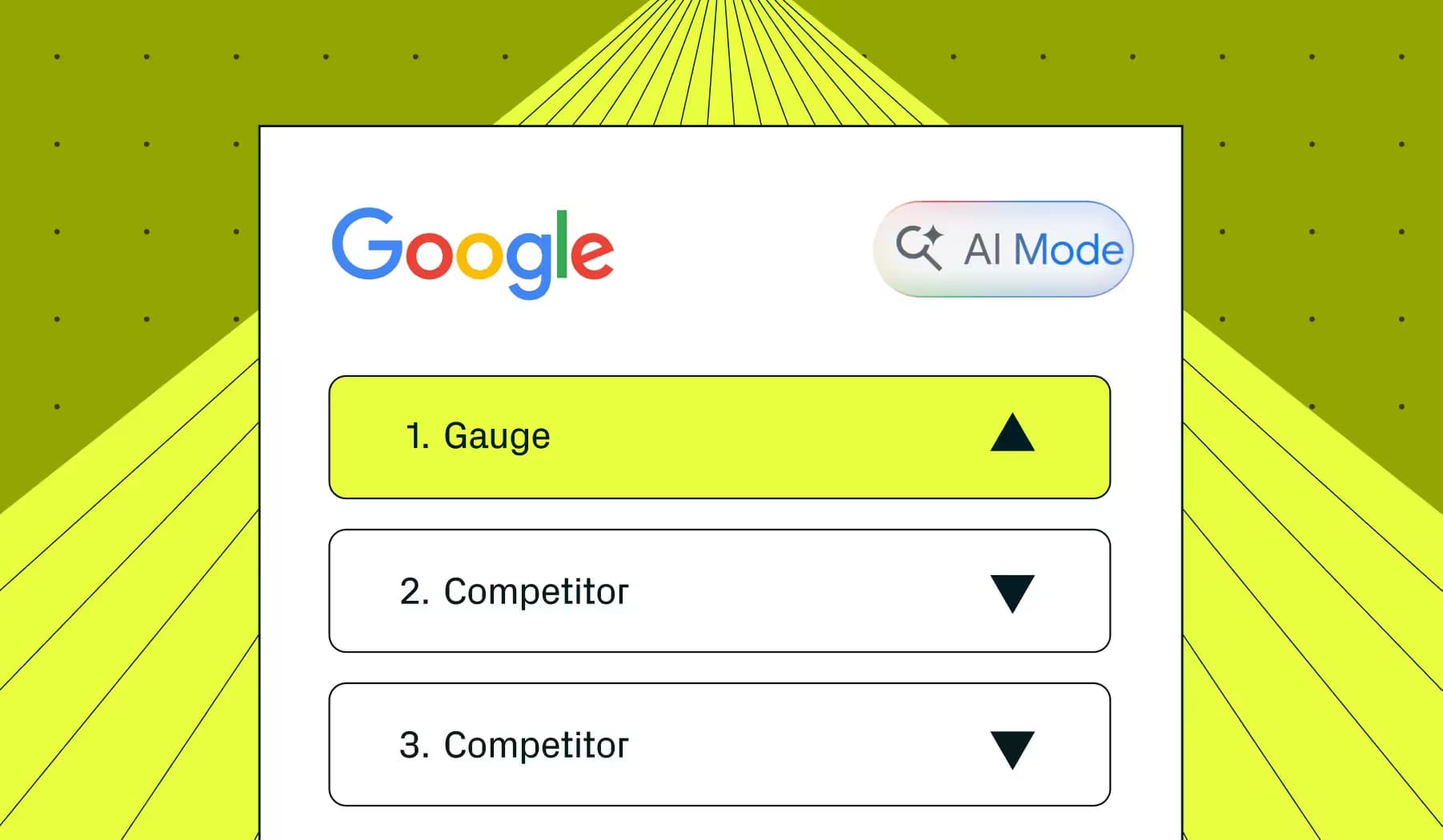The 10 Best Answer Engine Optimization (AEO) Tools in 2026: Complete Guide


Answer Engine Optimization (AEO) is becoming an important complement to traditional SEO strategies. It's about optimizing your brand's visibility in AI-generated answers rather than just traditional search rankings.
Here's what's important to understand upfront: SEO and AEO share many fundamentbeals. Brand positioning, market understanding, content creation, and optimization principles apply to both. But the game you're optimizing for is different, which means the tools you need are different too. Your existing SEO content may already be helping your AEO performance, but targeted optimization requires specialized capabilities.
The growth is hard to ignore. ChatGPT reached 100 million users faster than any previous application and now handles over 2 billion monthly queries. Google's AI Overviews appear in at least 13% of all searches. Perplexity, Claude, and Gemini continue growing their user bases. Whether you're ready or not, your customers are using these platforms to find solutions.
Understanding Answer Engine Optimization
Traditional search engines present lists of links. AI answer engines like ChatGPT, Claude, Perplexity, and Google's AI Overviews work differently. They synthesize information from multiple sources and generate comprehensive responses, citing the sources they trust.
The core distinction? Traditional SEO targets higher rankings in search results. AEO focuses on earning citations and mentions inside AI-generated answers. Think of it as the difference between appearing in a directory versus getting a personal recommendation.
Three trends are shaping the AEO landscape:
- Direct brand mentions: Success means appearing in the answer itself, not just in footnote citations
- Intent-based matching: AI engines favor content that closely aligns with user intent and context
- Cross-platform presence: Your visibility needs to span multiple AI platforms, each with unique behaviors
When You Need AEO
If you're an emerging business and potential customers are asking AI "What's the best solution for [your niche]?" but your brand never comes up, you're missing an entire category of prospects who never make it to traditional search.
If you're an established company with solid SEO, AEO tools help you extend your existing authority into AI channels. Strong SEO performance often indicates quality content and domain authority, exactly what AI engines look for when selecting sources. But ranking #1 on Google doesn't guarantee ChatGPT will mention you. The citation criteria are different.
If you're seeing organic traffic decline despite stable rankings, some of that traffic may have shifted to AI channels that traditional analytics can't track.
Our Tool Evaluation Criteria
Evaluating AEO tools requires a different approach than assessing traditional SEO platforms. Here's what we prioritized:
Cross-Platform Coverage: Tools need to track multiple AI engines, not just ChatGPT. Your audience uses different platforms, each with unique citation behaviors.
Data Accuracy: This matters more than most people realize. Tools that use model provider APIs return fundamentally different data than actual user experiences. Only tools accessing the front-end interface of AI models show you what real users see.
Citation Analysis: Understanding which sources AI engines trust is essential for building effective content strategies.
Prompt Discovery: The ability to find and test relevant prompts that trigger AI responses about your brand or industry.
Actionable Guidance: Dashboards alone aren't enough. The best tools specify exactly what to fix and how to fix it.
Competitive Intelligence: Understanding how competitors appear in AI responses reveals strategic gaps you can address.
We found the market split between tools focused on actionable recommendations versus those centered on visibility monitoring. Our rankings reflect this distinction.
The Top 10 AEO Tools for 2025
1. Gauge
Gauge monitors hundreds of customizable prompts daily for each client, analyzing responses and citations to generate specific, data-driven recommendations. Rather than generic advice, Gauge identifies concrete actions based on actual AI response patterns.
Case studies show notable results: Standard Metrics achieved 2x visibility growth in two weeks, while Eco saw 5x growth in four weeks. The platform works best for SaaS businesses and growth marketing teams as a complement to traditional SEO tools like Ahrefs or Semrush.
Best for: Data-focused marketing teams valuing high quality data and actionable analytics beyond basic tracking.
Key Capabilities:
- Comprehensive prompt monitoring across thousands of queries
- Gap analysis showing where your brand is missing from AI answers
- Coverage analysis revealing where you currently appear
- Uses front-end interface data (what real users see) rather than API responses
- Detailed competitor positioning analysis. See what exactly what your competitors rank for
- Citation depth analytics showing which sources AI engines trust
- Connects to Google Analytics for actual AI traffic measurement
- Prompt creation tools to transform keyword research into trackable prompts
- Supports multiple languages
- Localize prompts to your country with customizable IP locations
Limitations:
- Focuses on analytics rather than content generation
- Works best alongside traditional SEO platforms given its specialized focus
Bottom Line: Most comprehensive AEO platform. Best suited for growth-stage startups and enterprises serious about measuring and improving AI visibility with high quality data and data-driven recommendations.
2. Profound
Enterprise-focused AEO analytics for large, international organizations. Early market entrant backed by significant venture capital.
Best for: Global enterprises requiring multilingual capabilities and dedicated support.
Key Capabilities:
- Dedicated AI search strategist for enterprise plan subscribers
- International language support for global operations
- Front-end interface data for accuracy
Limitations:
- Premium enterprise positioning limits accessibility for smaller teams
- Concentrates on AI visibility without replacing traditional SEO tools
- Requires dedicated team resources for maximum value
3. Evertune
Evertune runs identical prompt sets multiple times to reduce volatility, executing approximately 12,000 prompts per product category per model. This provides more consistent data than tools that charge per prompt and consequently run fewer queries. However, their API-based approach means results differ from actual user experiences.
Best for: Brands focused on perception rather than lead generation from AI.
Key Capabilities:
- Large-scale prompt execution (12,000 prompts per category per model)
- Brand positioning analysis identifying recurring themes
Limitations:
- API-based methodology produces different results than real user experiences
- No custom prompt functionality currently
- Significantly more expensive than alternatives
4. Athena
Founded by former Google Search engineer Andrew Yan with $2.2M from Y Combinator. Over 100 clients including Paperless Post.
Best for: Businesses wanting Google Search expertise applied to AEO.
Key Capabilities:
- Built-in content generation for addressing gaps
- More affordable than many alternatives
- Clean, intuitive interface
Limitations:
- Prompt generation workflow lacks sophistication
- Custom prompt support only recently added
- Credit-based pricing may complicate budgeting versus flat monthly fees
- Recommendations don't always correlate directly to underlying data
5. Ahrefs Brand Radar
Integrated add-on within the established Ahrefs ecosystem, monitoring brand appearances in ChatGPT, Google's AI Overviews, Gemini, Perplexity, and Copilot.
Best for: SEO teams already using Ahrefs who want to add AEO capabilities.
Key Capabilities:
- AI share of voice analysis versus competitors
- Brand perception analysis showing how AI platforms characterize your brand
- Single-platform convenience for SEO and AEO
- Industry categorization for multi-vertical brands
Limitations:
- Less sophisticated than dedicated AEO platforms
- No custom prompt specification. You only see the data they choose to retrieve
- Add-on pricing significantly increases total costs
6. Semrush AI Toolkit
Semrush's AEO add-on showing how ChatGPT and Google's AI Mode represent your brand versus competitors.
Best for: SEO teams already using Semrush.
Key Capabilities:
- AI share of voice evaluation
- Brand perception analysis
- Integrated with existing Semrush workflows
- Established user community and knowledge base
Limitations:
- More limited than dedicated AEO platforms
- Insufficient depth for enterprise-level strategies
- Basic analytics compared to specialized tools
7. ProductRank.ai
Free tool for viewing how different LLMs respond to specific topics or brands. Each model receives your query and returns key citations and rankings.
Best for: Teams exploring AEO for the first time or needing quick brand sentiment checks.
Key Capabilities:
- Support for all major models (ChatGPT, Claude, Gemini, Perplexity)
- Completely free to use
- Shows how each model describes brands
Limitations:
- Uses API responses rather than front-end data
- No historical tracking over time
- Limited to basic sentiment and positioning checks
Bottom Line: Good starting point for understanding what AI models say about your brand. Once you're ready for serious optimization, consider moving to a more comprehensive platform.
8. Gumshoe
Provides persona-focused visibility analysis, allowing brands to examine performance across different buyer segments. However, reliance on provider APIs results in lower data quality compared to scraped experiences.
Best for: Businesses with clearly defined buyer personas requiring persona-specific optimization.
Key Capabilities:
- Persona-focused visibility analysis
- Standard AEO tracking capabilities
- Targeted optimization guidance by persona
Limitations:
- Inferior data quality from API usage rather than real user interface
- Persona methodology may be overly complex for businesses with straightforward segments
- Credit-based prompt executions make daily tracking expensive
- Data quality suffers from model randomness without daily prompt runs
9. Hall
Multi-platform monitoring across 8 LLMs with flexible pricing tiers from free basic tracking to business-level capabilities.
Best for: Businesses requiring monitoring across multiple LLM platforms.
Key Capabilities:
- Tracks across 8 different LLMs
- Free tier available for basic tracking
- Comprehensive question data analysis
- Detailed citation monitoring
Limitations:
- Less established brand versus competitors
- Tiered structure may restrict access to important features in lower-cost plans
- Eight LLM focus may miss some emerging platforms
10. Bluefish AI
Emphasizes tracking across emerging AI platforms beyond the major players.
Best for: Companies wanting to establish early presence on new AI platforms.
Key Capabilities:
- Early monitoring of emerging AI platforms
- Comprehensive ecosystem coverage
- Early adoption advantages
Limitations:
- Limited publicly available information about features
- Newer platform with less established track record
- May lack depth and reliability of more established alternatives
Choosing the Right Tool
The AI search landscape is evolving quickly, and different tools serve different needs. Here's a practical framework:
If you're just starting: Try ProductRank.ai for free to understand the basics, then move to a comprehensive platform when you're ready to optimize seriously.
If you need enterprise-level analytics: Gauge and Profound offer the most comprehensive capabilities, with Gauge focusing on actionable recommendations and Profound on international operations.
The most important factor is data accuracy. Tools using front-end interfaces (like real users see) versus API endpoints provide fundamentally different results. If you're making strategic decisions based on AEO data, accuracy matters.
The Bottom Line
Good SEO content can improve your AEO metrics, but the most effective optimization targets AI engines specifically. Start by understanding your current AI visibility across major platforms, then choose tools that provide actionable guidance rather than just dashboards.
The brands succeeding in AI search aren't necessarily those with the biggest budgets. They're the ones with clear understanding of how AI engines make decisions and the right tools to act on those insights.
Traditional SEO isn't going anywhere, but AI-driven search is becoming a significant channel for brand discovery. Tools that help you measure and optimize for both will give you the most comprehensive search visibility strategy.
Gauge's Competitive Advantage
The AI search revolution advances faster than most marketing departments can keep pace. While alternatives provide basic monitoring or add-on features to existing SEO products, Gauge was purposely built for answer engine optimization from inception. The platform doesn't simply show your ranking position. It tells you what specific actions to take for improvement based on the data.
"Everything You Need to Understand, Measure, and Improve Your Brand's Presence in AI Search" represents more than their tagline. It's their competitive edge.
Brands succeeding in AI search aren't always those with the largest budgets or most extensive content libraries. They're the ones with the deepest understanding of AI engine decision-making processes and the right tools to execute on those insights. Gauge delivers that understanding, converting the complexity of multi-platform AI optimization into actionable intelligence driving genuine business outcomes.
Frequently Asked Questions
What's the difference between AEO and SEO?
They share many fundamentals: brand positioning, content creation, optimization principles. The key difference is what you're optimizing for. SEO targets higher rankings in search results. AEO focuses on citations and mentions in AI-generated answers. Strong SEO often helps AEO performance since AI engines value quality content and domain authority, but ranking #1 on Google doesn't automatically mean ChatGPT will mention you.
Should I stop doing SEO if I start doing AEO?
No. Think of AEO as complementing SEO rather than replacing it. Both strategies work together. Good SEO content can improve your AEO metrics, and many optimization principles apply to both disciplines. The difference is in measurement and targeting. You need tools that help you understand both traditional search rankings and AI visibility.
How do I pick the right AEO tool?
Start by assessing your current AI visibility across ChatGPT, Gemini, and Perplexity. Consider your team's technical capabilities, budget, and whether you need basic monitoring or advanced analytics. Look for comprehensive platform coverage, real-time tracking, competitive analysis, and actionable recommendations based on actual data. Enterprise brands usually benefit from comprehensive platforms like Gauge or Profound, while smaller teams might start with more accessible options.
How quickly can I expect results?
AEO optimization typically shows results faster than traditional SEO, often within 2-4 weeks of focused effort. This happens because AI engines can incorporate new information more rapidly than traditional search engines with complex crawling and indexing processes. Most brands see measurable improvements within 6-8 weeks of consistent optimization. Some case studies show 2x growth within two weeks, though sustainable results require ongoing effort.
What's more important: basic monitoring or advanced analytics?
It depends on your goals. Basic monitoring tells you if you're mentioned. Advanced analytics tell you why you're mentioned and what specific actions will improve your visibility. If you're just exploring AEO, basic monitoring works fine. If you're serious about optimization, you need platforms that provide actionable recommendations based on comprehensive data analysis.
Can I use multiple AEO tools together?
Yes, many effective strategies combine multiple tools for comprehensive coverage. You might use one platform for competitive analysis and recommendations, another for integration with existing SEO workflows. The key is avoiding redundant monitoring. Choose complementary tools serving different aspects of your strategy. For most organizations, starting with one comprehensive platform and adding specialized tools as needed provides the best return.
Do I need specialized tools or can I use Google Analytics?
Google Analytics can track some metrics like referrer traffic from AI platforms, but won't capture the full picture. For comprehensive AEO measurement (including brand visibility across AI models, citation rates, and competitive analysis), specialized tools are essential for serious optimization efforts.
What if I already have strong SEO performance?
Strong SEO actually positions you well for AEO success. Quality content, solid domain authority, and topical expertise are exactly what AI engines look for when selecting sources to cite. However, you still need AEO-specific optimization to maximize visibility in AI responses. Your existing content is a strong foundation, but AI engines apply different citation criteria than traditional search algorithms.
Related Blogs
 How to Write Listicles That Rank in AI Search: (Best practices from 29 million answers analyzed)
How to Write Listicles That Rank in AI Search: (Best practices from 29 million answers analyzed)
.png)


